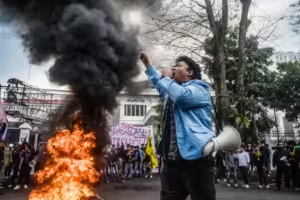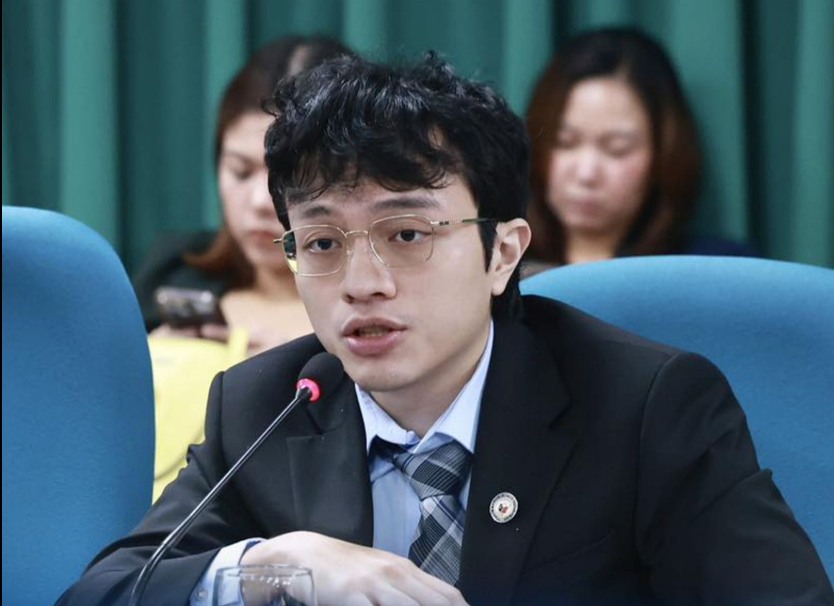📷: A protest in Bandung, West Java on Monday. The demonstrations began in Jakarta last week and spread across Indonesia when a delivery driver was run over and killed by an elite police unit. Photograph: Timur Matahari/AFP/Getty Images
By Zia Luna
Indonesia’s recent political unrest, sparked by outrage over lawmakers’ lavish housing allowances, has escalated into deadly protests, looting, and institutional backlash. But beneath the surface lies a deeper rot: economic inequality, elite impunity, and a government deaf to public outrage.
The Philippines should be watching closely. Because while our streets remain calm—for now—the conditions for similar upheaval are already in place. And they’re not just similar. They’re systemic.
Corruption Isn’t Just Widespread—It’s Engineered
Indonesia’s unrest was triggered by elite excess. In the Philippines, corruption is not just tolerated, it’s institutionalized. Recent revelations show that up to 70% of flood control funds, worth ₱545 billion, were lost to “ghost” projects and kickbacks. Finance Secretary Ralph Recto admitted the economy could have grown faster if those funds had been properly spent. President Marcos himself called the budget “disturbing,” yet failed to address the deeper issue: a system designed to reward cronies and punish whistleblowers.
Transparency International ranks the Philippines 114th out of 180 countries in corruption perception. That’s not a slip—it’s a pattern. And it’s costing lives, livelihoods, and legitimacy.
Dissent Is Being Silenced—Not Solved
Indonesia’s protests were amplified by youth and digital mobilization. In the Philippines, similar energy exists, but it’s being suppressed. Human rights watchdog Karapatan reports 119 extrajudicial killings, 255 arbitrary arrests, and over 63,000 cases of indiscriminate firing under the Marcos Jr. administration. The Anti-Terrorism Act is being weaponized against activists, journalists, and humanitarian workers.
This isn’t peace. It’s pacification. And it’s breeding resentment.
Elite Infighting and Democratic Decay
Indonesia’s President Prabowo faces legitimacy challenges from within his coalition. In the Philippines, the Marcos-Duterte alliance is unraveling amid impeachment threats, budget wars, and ICC investigations. Yet instead of transparency, we get silence. Marcos refused to address Vice President Duterte’s alleged misuse of confidential funds, despite promising an anti-corruption crusade.
When accountability is selective, democracy becomes performative.
The Verdict: We’re on the Brink
Indonesia’s unrest is not an anomaly; it’s a mirror. And the Philippines is staring into it. We face the same volatile mix: economic frustration, elite impunity, youth disillusionment, and a government more invested in optics than reform.
If we want to avoid the flames, we must act now. That means:
– Dismantling corruption networks, not just reshuffling budgets
– Protecting dissent, not criminalizing it
– Demanding transparency from all branches of government
– Supporting press freedom and watchdog journalism
– Mobilizing civil society before the streets do
Because once the unrest begins, it’s too late for damage control.




